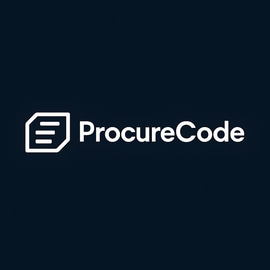Why Vendors Lose Bids (And How to Start Winning More Contracts)
Most vendors don’t lose bids because of bad offers—they lose because they don’t understand how procurement really works. Learn how to write smarter proposals, price strategically, and win more B2B contracts with insider insights from the buyer’s side.
7/12/20252 min read


Why Vendors Lose Bids—And What to Do Differently to Start Winning Contracts
Introduction: The Real Reason You’re Losing Bids
Submitting proposal after proposal with no results? You're not alone—and you're not necessarily doing anything wrong. Most vendors lose bids not because their offering lacks value, but because they don't understand how procurement professionals actually make decisions.
ProcureCode pulls back the curtain on the buyer’s side of the process and shows you how to reposition your bids so they align with procurement's expectations and scoring systems—and ultimately win more contracts.


Why Vendors Lose: The Big 5
Too often, good vendors lose for the wrong reasons. Here are the five most common:
Misunderstanding how scoring works: Procurement often uses weighted scoring systems. If your proposal doesn't map to their criteria, even a great offer gets buried.
Overselling value that wasn’t requested: Pitching benefits no one asked for creates clutter and confusion.
Ignoring the role of price: You may think you're selling on value, but if price is weighted at 60%, that value won’t save you.
Failing to ask smart pre-bid questions: Clarify specs, goals, and deal-breakers before you submit. Most vendors don’t.
Lack of relationship-building: Not knowing who influences the decision leaves you blind to scoring logic and priorities.
Key Insight: It’s not about having the best solution. It’s about submitting the best-scoring proposal.
How Procurement Really Decides
Here’s what happens on the buyer's side once proposals are submitted:
Scoring Criteria: Most evaluations are based on 3–4 key categories (usually price, technical fit, risk, and value-added).
Evaluation Weightings: Price often carries 40–60% of the score. That means you can't afford to ignore it, even with a premium product.
Blind Spots: Procurement teams don’t always understand your value unless you connect the dots clearly.
Differentiation: What sets you apart must be visible in scoring terms, not marketing speak.
Reality Check: You don’t have to be the best. You have to be the best under the scoring system.


How to Start Winning More Bids
So what should you do differently? Start here:
Think like procurement: Build your proposal around how they’re scoring, not how you’re selling.
Scoreability first: Use formatting and clear labeling so evaluators can easily assign points.
Ask smart pre-bid questions: Clarify unclear specs, priorities, or goals. This builds trust and reveals useful insights.
Price strategically: Aim to win and protect your margins. Offer price tiers, discounts, or risk-reduction models.
Post-award follow-up: Even if you lose, follow up. Ask why. Keep the door open for the next opportunity.
Winning isn’t just about the proposal—it’s about how you show up before, during, and after the bid.
What to Do Next
You're already ahead of 90% of your competitors by reading this far. Now it’s time to act:
✅ Book: A free 15-minute strategy call to review your next bid
✅ Join: The newsletter for weekly tips, tools, and strategies
This is where smart vendors become preferred vendors.
Start here. Win smarter.
